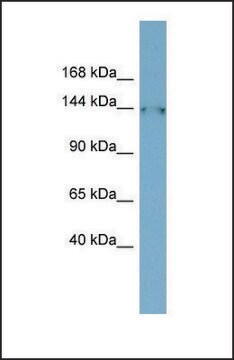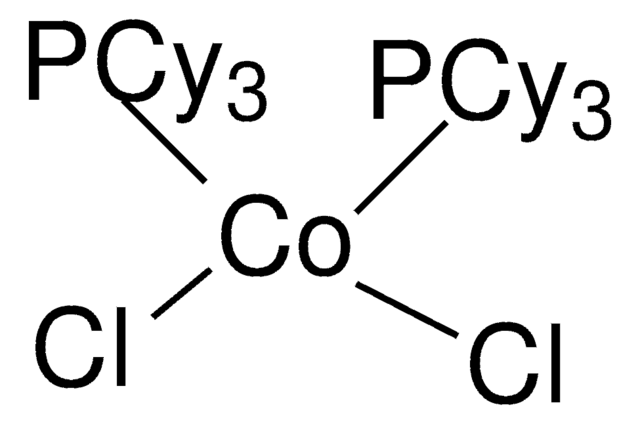60818
Cobalt(II) chloride
purum p.a., anhydrous, ≥98.0% (KT)
Synonym(s):
Cobalt dichloride, Cobalt muriate, Cobaltous chloride, Dichlorocobalt
About This Item
Recommended Products
vapor pressure
40 mmHg ( 0 °C)
Quality Level
grade
purum p.a.
Assay
≥98.0% (KT)
form
powder
impurities
≤2% water
mp
724 °C (lit.)
anion traces
sulfate (SO42-): ≤50 mg/kg
cation traces
Ca: ≤50 mg/kg
Cd: ≤50 mg/kg
Cu: ≤50 mg/kg
Fe: ≤50 mg/kg
K: ≤100 mg/kg
Na: ≤200 mg/kg
Ni: ≤1000 mg/kg
Pb: ≤50 mg/kg
Zn: ≤50 mg/kg
SMILES string
Cl[Co]Cl
InChI
1S/2ClH.Co/h2*1H;/q;;+2/p-2
InChI key
GVPFVAHMJGGAJG-UHFFFAOYSA-L
Looking for similar products? Visit Product Comparison Guide
General description
Application
- Acylation of various alcohols (primary and secondary).
- Acylation of various hydroxyl compounds (high selectivity).
- Regioselective ring-opening reaction of oxiranes.
- Coupling reactions of anhydrides or acid chlorides with thiols.
- Protection of aldehydes, via chemoselective dithioacetalization reaction.
- Solvent-free synthesis of β-enaminones and β-enamino esters.
Signal Word
Danger
Hazard Statements
Precautionary Statements
Hazard Classifications
Acute Tox. 4 Oral - Aquatic Acute 1 - Aquatic Chronic 1 - Carc. 1B Inhalation - Eye Dam. 1 - Muta. 2 - Repr. 1B - Resp. Sens. 1 - Skin Sens. 1
Storage Class Code
6.1D - Non-combustible acute toxic Cat.3 / toxic hazardous materials or hazardous materials causing chronic effects
WGK
WGK 3
Flash Point(F)
Not applicable
Flash Point(C)
Not applicable
Choose from one of the most recent versions:
Already Own This Product?
Find documentation for the products that you have recently purchased in the Document Library.
Customers Also Viewed
Our team of scientists has experience in all areas of research including Life Science, Material Science, Chemical Synthesis, Chromatography, Analytical and many others.
Contact Technical Service









